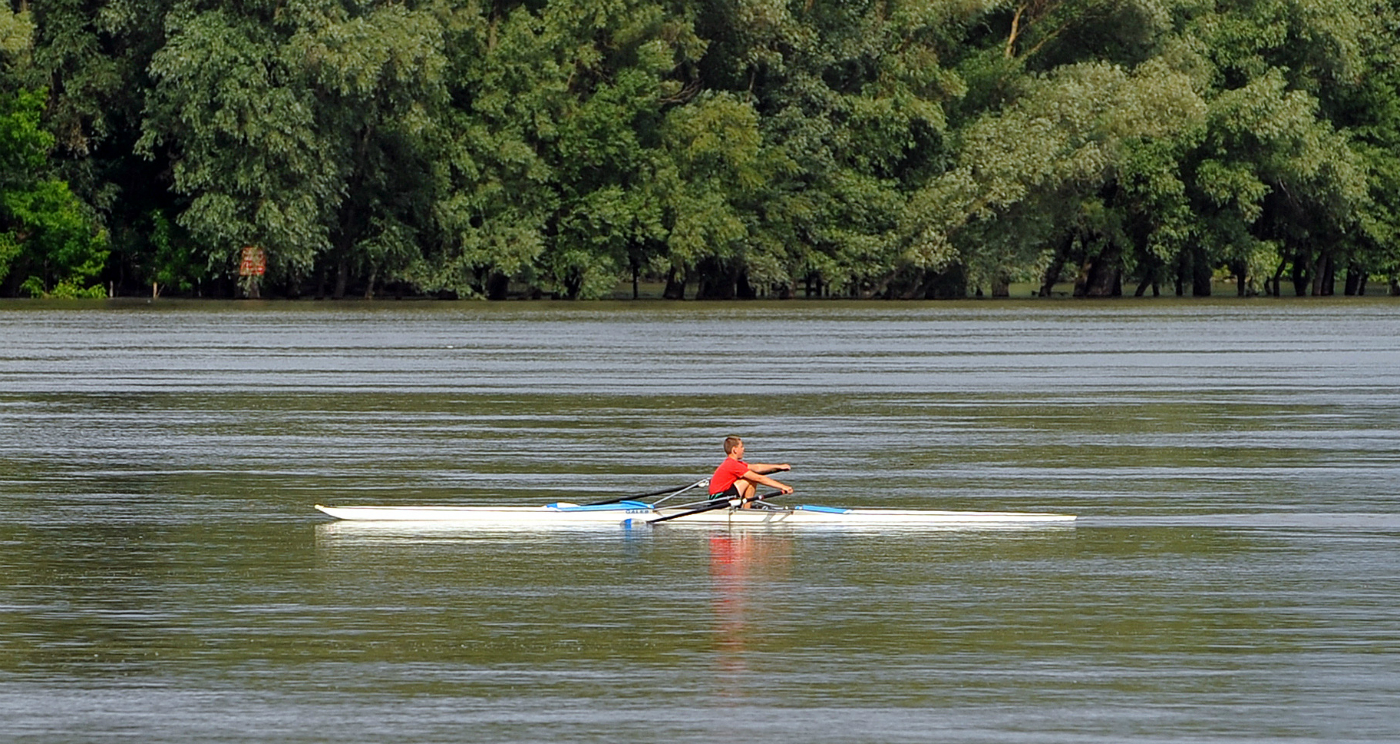Liberland: the bitcoin nation welcoming mellow new citizens
In Depth: self-proclaimed free state follows ‘live and let live’ approach and tax is voluntary

A free daily email with the biggest news stories of the day – and the best features from TheWeek.com
You are now subscribed
Your newsletter sign-up was successful
The self-proclaimed Free State of Liberland will mark its third anniversary this year with its first ever celebrations on home turf - a three-square-mile patch of land known as Gornja Siga that is the product of a border dispute.
The micronation, on the Danube River between Serbia and Croatia, was created by Czech politician Vit Jedlicka in 2015 and has adopted bitcoin as its national currency. Other cryptocurrencies are also accepted.
Although officially recognised by no one, Liberland received 480,000 citizenship applications by the end of 2017, including 100,000 from the Middle East, and 18,000 from the US, Jedlicka told Radio Prague.
The Week
Escape your echo chamber. Get the facts behind the news, plus analysis from multiple perspectives.

Sign up for The Week's Free Newsletters
From our morning news briefing to a weekly Good News Newsletter, get the best of The Week delivered directly to your inbox.
From our morning news briefing to a weekly Good News Newsletter, get the best of The Week delivered directly to your inbox.
The land on which it sits was once part of Serbia, but ended up in Croatia when the borders were redrawn at the end of the Balkan Civil War in the 1990s. Croatia didn’t accept the land or the new borders, however, as it would have lost territory, reports the BBC, so Jedlicka planted a flag in the ground in April 2015 and declared it an independent nation.
Serbian and Croatian military forces forces were finally removed last year, allowing for freedom of movement, although access is only possible via the Danube River, because there is no border agreement with Croatia yet.
The country’s motto is “to live and let live”. Citizens can largely do as they please, with tax paid on a voluntary basis, and no laws against smoking marijuana. The nation accepts the cryptocurrencies bitcoin, Bitcoin Cash and Ethereum for its financial operations and donations, and the state budget is distributed among almost a dozen cryptocurrencies.
Jedlicka, a former financial markets analyst, says the nation has no debt and low running costs, so he is not worried about its digital coin stock.
A free daily email with the biggest news stories of the day – and the best features from TheWeek.com
“Putting yourself at the mercy of a highly speculative and intangible asset might sound like a recipe for disaster, but Jedlicka has not let this phase him,” says The Daily Telegraph.
Indeed, Jedlicka is urging interested parties to submit their applications for citizenship in time for spring. “That is when our social and cultural life starts to flourish. Liberlanders can occupy boats and houseboats parked in Liberland waters,” he told the newspaper.
-
 The environmental cost of GLP-1s
The environmental cost of GLP-1sThe explainer Producing the drugs is a dirty process
-
 Greenland’s capital becomes ground zero for the country’s diplomatic straits
Greenland’s capital becomes ground zero for the country’s diplomatic straitsIN THE SPOTLIGHT A flurry of new consular activity in Nuuk shows how important Greenland has become to Europeans’ anxiety about American imperialism
-
 ‘This is something that happens all too often’
‘This is something that happens all too often’Instant Opinion Opinion, comment and editorials of the day
-
 Epstein files topple law CEO, roil UK government
Epstein files topple law CEO, roil UK governmentSpeed Read Peter Mandelson, Britain’s former ambassador to the US, is caught up in the scandal
-
 Iran and US prepare to meet after skirmishes
Iran and US prepare to meet after skirmishesSpeed Read The incident comes amid heightened tensions in the Middle East
-
 Israel retrieves final hostage’s body from Gaza
Israel retrieves final hostage’s body from GazaSpeed Read The 24-year-old police officer was killed during the initial Hamas attack
-
 China’s Xi targets top general in growing purge
China’s Xi targets top general in growing purgeSpeed Read Zhang Youxia is being investigated over ‘grave violations’ of the law
-
 Panama and Canada are negotiating over a crucial copper mine
Panama and Canada are negotiating over a crucial copper mineIn the Spotlight Panama is set to make a final decision on the mine this summer
-
 Why Greenland’s natural resources are nearly impossible to mine
Why Greenland’s natural resources are nearly impossible to mineThe Explainer The country’s natural landscape makes the task extremely difficult
-
 Iran cuts internet as protests escalate
Iran cuts internet as protests escalateSpeed Reada Government buildings across the country have been set on fire
-
 US nabs ‘shadow’ tanker claimed by Russia
US nabs ‘shadow’ tanker claimed by RussiaSpeed Read The ship was one of two vessels seized by the US military